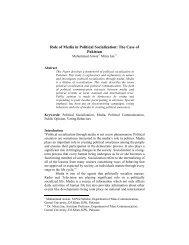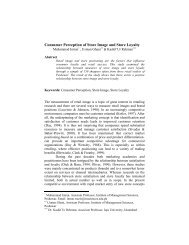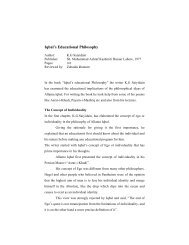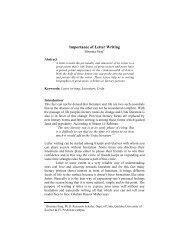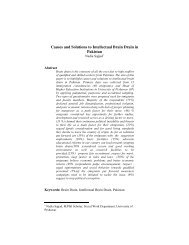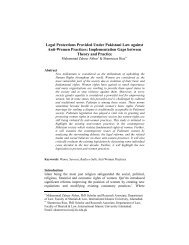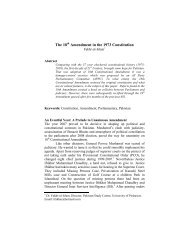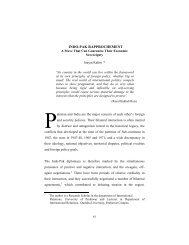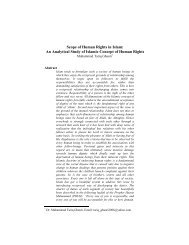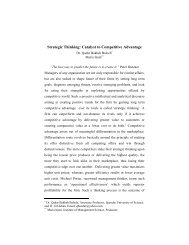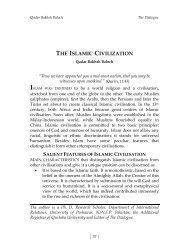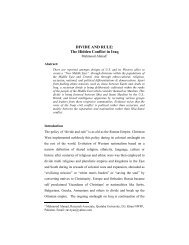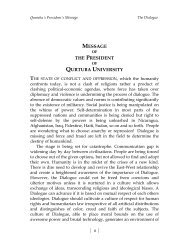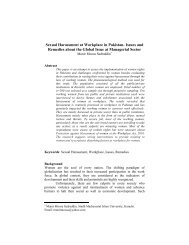COLD WAR POLITICS OF SUPERPOWERS IN SOUTH ASIA Abstract
COLD WAR POLITICS OF SUPERPOWERS IN SOUTH ASIA Abstract
COLD WAR POLITICS OF SUPERPOWERS IN SOUTH ASIA Abstract
You also want an ePaper? Increase the reach of your titles
YUMPU automatically turns print PDFs into web optimized ePapers that Google loves.
interests. During the Cold War ear, it was the Kremlin’s predominant policy to<br />
reduce Western influence in the Gulf, in particular the US military presence.<br />
The Soviets also considered the US naval forces in the Indian Ocean (Diego<br />
Garcia) to be dangerous and wished to change the Gulf rulers’ tacit acceptance<br />
of its presence. Moscow’s offensive considerations and access to Gulf oil were<br />
mainly to weaken the economies of the industrialized nations and to create<br />
uncertainty in the region to obtain some leverage or to gain concessionary<br />
rates for Persian Gulf oil for its communist allies.<br />
Conclusion<br />
Since 1945 the region of South Asia had no valuable importance for the<br />
United States but in the absence of the US the Soviet Union had taken full<br />
advantage to expand its influence in the region. For the US region was neither<br />
crucial to its economy nor vital for investment and trade relations. It always<br />
had shown their interest in the region from global pursuits disregarding the<br />
aspiration of regional actors. Thus, the US never introduced long-terms and<br />
well-calculated policy for the region but it was more interested to prevent the<br />
flood of communism and determined to contain the Soviet expansionism in the<br />
Persian Gulf region. According to Perviaz Iqbal Cheema, the US always<br />
misunderstood the “conflictual cobweb of South Asia” and pressurized<br />
Pakistan (the most loyal ally in Asia) not to annoy India. In fact, they failed to<br />
accommodate Pakistan’s wishes at the expense of India who always hurt the<br />
United States interests in the region. Although the US major concern has been<br />
and still is to strengthen India against China but policy makers have not been<br />
successful to achieve their objectives from India. Thus, during the Cold War<br />
the US efforts for the stability and peace in South Asia were less impressive<br />
but the Soviet Union and China played more active role to stabilize their<br />
influence and position in the region. In this regard, the Soviet Union supported<br />
India and Afghanistan and China backed Pakistan to counter Delhi-Moscow<br />
axis in the region.<br />
101



